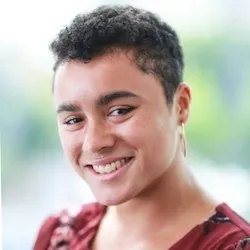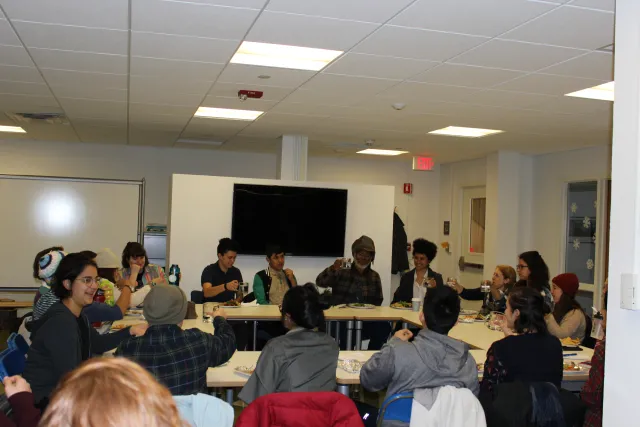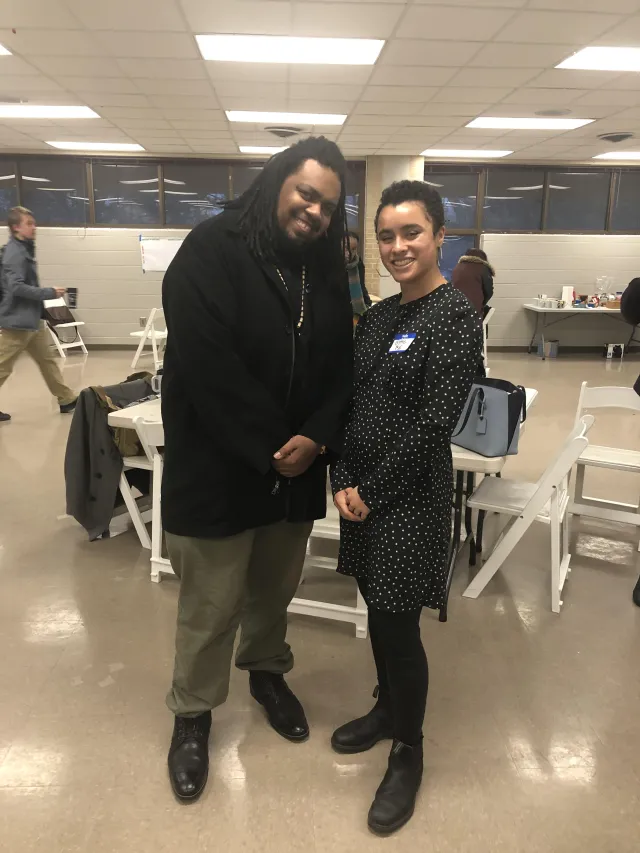Centering Justice in Environmental Issues: A Young Alum's Journey
Published December 9, 2020

Blythe Coleman-Mumford’s (’17) current job at Partnership for Southern Equity as the just energy coordinator is emblematic of her engagements during her time at Smith—and before, in her hometown of Oberlin, Ohio. There, Blythe led the student-run community garden at her high school and was deeply inspired by the local food activists in the Cleveland area. Empowered by the work she was doing and driven by her own experience living with Type 1 diabetes, Blythe wanted to continue exploring her passion for urban agriculture and sustainable, healthy living. Combining Smith’s environmental science and policy major with a sustainable food concentration allowed her to do just that.
For Blythe, the environmental science and policy (ES&P) major offered the science courses she knew she needed as a foundation for her field as well as the freedom to take courses that related to her other interests. One course that was pivotal to understanding her own purpose and passion was Professor Liz Pryor’s The Emancipation and the Afterlife of Slavery. At the time, Blythe was trying to find ways to connect her studies in ES&P to histories of racial injustice and oppression. The course helped her to realize how the history of racial injustice is deeply linked to all issues of the environment and sustainability. This understanding solidified her commitment to serve Black communities and fight for racial justice through issues of sustainability.
One course that was pivotal to understanding her own purpose and passion was Professor Liz Pryor’s The Emancipation and the Afterlife of Slavery.
She put this commitment into practice through a Praxis internship at the Truly Living Well Center for Natural Urban Agriculture in Atlanta, Georgia, for her sustainable food concentration. The center aligned with her interests in urban agriculture and food justice, and gave her the profound opportunity to work with Maurice Small, who had first inspired her in high school. Blythe intentionally intersected with Small again during her time at Smith through SCOPES, a student organization she co-founded to bring more conversations about intersectionality into the environmental and other science majors. She brought Small to campus for a conversation with students. The event, “Growing in Confined Spaces: A Lecture, Panel and Workshop,” created a space to not only discuss urban gardening practices, but also consider what it means to be a person of color in the environmental movement.

(the SCOPES event with Maurice Small)
Upon graduation, Blythe knew she wanted to return to the Atlanta area. She’d fallen in love with the community activism and energy around sustainability issues during her Praxis internship, and wanted to continue working for food justice. Her first jobs were at Georgia Organics and Sevananda Natural Foods Co-Op. Through those positions and by attending events in the area, she made connections that led her to her current role at the Partnership for Southern Equity. As the just energy coordinator, she works with her team to advocate for policies that create a more equitable energy system and to educate and empower residents around energy issues. She loves working in the community and being connected to the larger Southern community that’s working toward sustainability by centering on equity and justice.
As the just energy coordinator, she works with her team to advocate for policies that create a more equitable energy system and to educate and empower residents around energy issues.

(Blythe with a colleague at the USCAN Building Power Subgroup meeting)
Blythe knows she could not have landed where she is now without having her ears attuned to multiple conversations at once—as a leader, she knows that the loudest voices and conversations are not the only ones. She continues to remind herself to also find and listen to the smaller conversations going on around her—in her neighborhood and the larger community. She advises Smithies to do the same and to show up authentically and build relationships with others who have common values and purpose.
Blythe knows she could not have landed where she is now without having her ears attuned to multiple conversations at once—as a leader, she knows that the loudest voices and conversations are not the only ones.